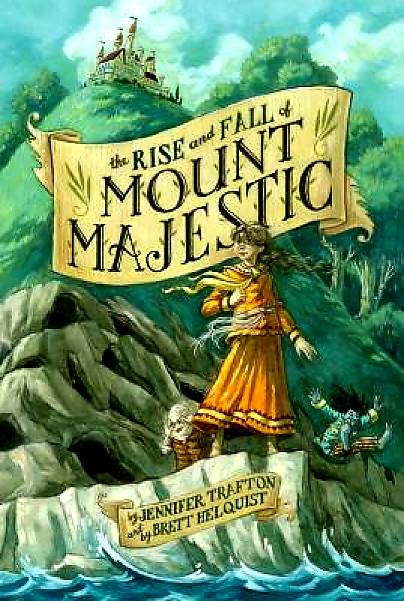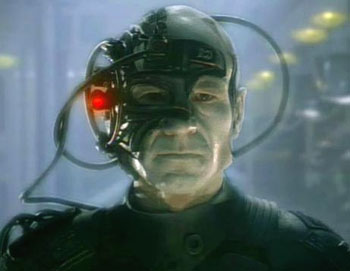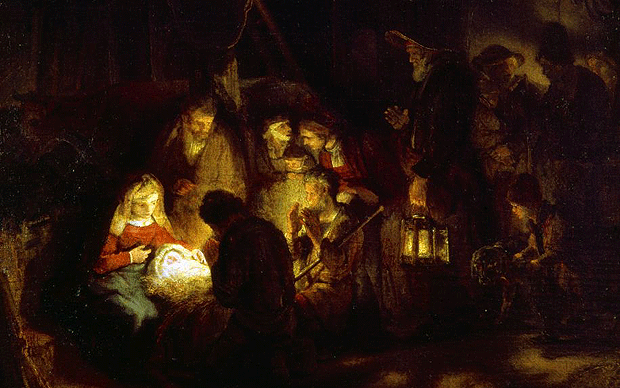If Jesus Were a Parent
 We’ve been reading Hal Perkins’ If Jesus Were a Parent: Coaching Your Child to Follow Jesus in a Sunday school class for a couple of months. It’s a book that has stimulated some very lively discussion and strong feelings of all kinds. I wasn’t going to try to write about it here, yet I find myself wanting to find some order in my responses to the book. So here goes.
We’ve been reading Hal Perkins’ If Jesus Were a Parent: Coaching Your Child to Follow Jesus in a Sunday school class for a couple of months. It’s a book that has stimulated some very lively discussion and strong feelings of all kinds. I wasn’t going to try to write about it here, yet I find myself wanting to find some order in my responses to the book. So here goes.
First, the good. I love Perkins’ emphasis on the heart. Those of us who are Christians want more than anything for our children to know the Lord, but that won’t happen merely by imposing external rules and structures, or by taking them to church, or even by getting them to memorize Scripture. It will only happen if they meet Jesus, and this is an encounter of the heart — as is the entire Christian life. Perkins’ approach to parenting involves a lot of heart-level interaction and returns again and again to the need for parents to know their children — to invest in the relationship starting very early with one-on-one time and discussion. The goal of parenting is to introduce our children to Jesus, and to teach them how to listen to his direction as they live and work and make decisions. I found much here that was practical and helpful and inspiring along these lines.
Perkins sets the bar pretty high, but I didn’t mind that. I did, however, wear out about 2/3 of the way through the book. The same thing happened to me when I read John and Stasi Eldredge’s Captivating. Great, inspiring, challenging stuff, and by the time I was 2/3 through I was exhausted. I had absorbed all I could absorb for the moment; I had enough to work on. So I plowed through the last third because, of course, I’m a book-person, and that’s what we do: we finish the book. But I was already saturated.
On top of that, there were aspects of the book that were controversial in the class. Many folks seemed to think that Perkins was presenting himself as perfect: “If Jesus were a parent, he’d be like me.” I didn’t really mind that he was good at this parenting thing. But I did feel that at times there was a missing link somewhere, a bridge between the real world of day-to-day, relentless, repetitive, often monotonous trivia of parenting and the ideal ends described here.
Part of this goes back to the subtitle equating parents with coaches. I’m not sure I agree. I think parents and coaches are very different animals, actually. Coaches have the luxury of distance; they go home to their own bed to sleep at night, and they probably get whole seasons “off” to regroup and re-evaluate. Parents don’t. We’re at it 24/7, and there is precious little objective distance till the children are grown and out of the house. So while I like the coaching metaphor, I’m not sure it really works for me.
Besides the sense of a missing link, and perhaps related to it, is the sense that Hal Perkins can be rather tone-deaf. That’s what they call it when it characterizes a politician: someone who is proclaiming his views loudly, but seems to miss the fact that he’s put his foot in his mouth. There were examples given in this book from Perkins’ own experience that were intended as models to emulate, but which seemed to reflect failure of which the author was oblivious. All of us fail sometimes — we’re indecisive, or heavy-handed, or we have bad timing — and we can be gracious when others do. But when others fail, and then say of that failure, “You should follow my example in this,” it falls pretty flat.
Finally, there is the title itself, inviting speculation on “if Jesus were a parent.” He wasn’t a parent. We are not given the gift of his actual example in the role of a parent. I’m reminded of an episode when my daughters were younger and one of them had received a “WWJD” bracelet at some event or other. I walked past the room where both girls were surveying a disaster scene of legos scattered to the four corners of the earth, every toy from the toybox dumped, and a fort constructed of bedding, and heard my oldest (then around 6) say, “What would Jesus do if he saw this room?”
“He’d tell us to clean it!” exclaimed my youngest (then 3).
“Or,” said Older Daughter speculatively, “he might send an angel to do it!”
It capsulized for me the problem with “what would Jesus do” thinking: such speculations can end in mere wishful thinking. And even when we are walking in relationship with him, I don’t know as I am ever comfortable “speaking for” him in quite such a blatant way.
The title beckons us down the road of “leadership principles from Scripture.” But while these may form some guardrails for us in our parenting, the heart of walking with the Lord is not simply emulating his principles, but interacting with him in the moment-by-moment business of life, submitting our minds daily to the stern light of Scripture. “If Jesus were a parent,” he would live as he did when he walked the earth: in continual seeking of God’s will, and in a humility that’s always shocking — especially apparent in this season when we consider the vulnerability and poverty of his first entrance into the world. This will look different in different families. I see Jesus with his disciples as deeply caring, and willing to answer all their questions. But I never see him being intrusive with them in the way some parts of this book seemed (to me) to be suggesting.
In the end, it’s a mixed bag, like so many books are. There are truths here that make it well worth reading, and the fact that it made the class wrestle and haggle is hardly a point against it. It means it was engaging and challenging, and it opens up consideration of the issues we care most deeply about as Christian parents. I recommend it, and I recommend reading it with other parents, as I’ve had the privilege and blessing of doing. The class has been a rich experience and was the ideal setting for processing this book’s exploration of the fearful and wonderful territory of Christian parenting.





One Comment
Barbara H.
I think I’d like and dislike the same things you did about it.
I am uncomfortable with the WWJD phenomenon, too. I liked the book the question is based on, and I understand its goal is to make us think before acting, and that’s good. But except for knowing He would not sin, I don’t think we can presume to know how He would handle a variety of situations. He certainly surprised people in His day and I am sure He would again if walking on this earth.
Nevertheless, I have thought of some aspects of His discipling in reference to parenthood — patience with squabbles and people wanting to be “first,” etc.